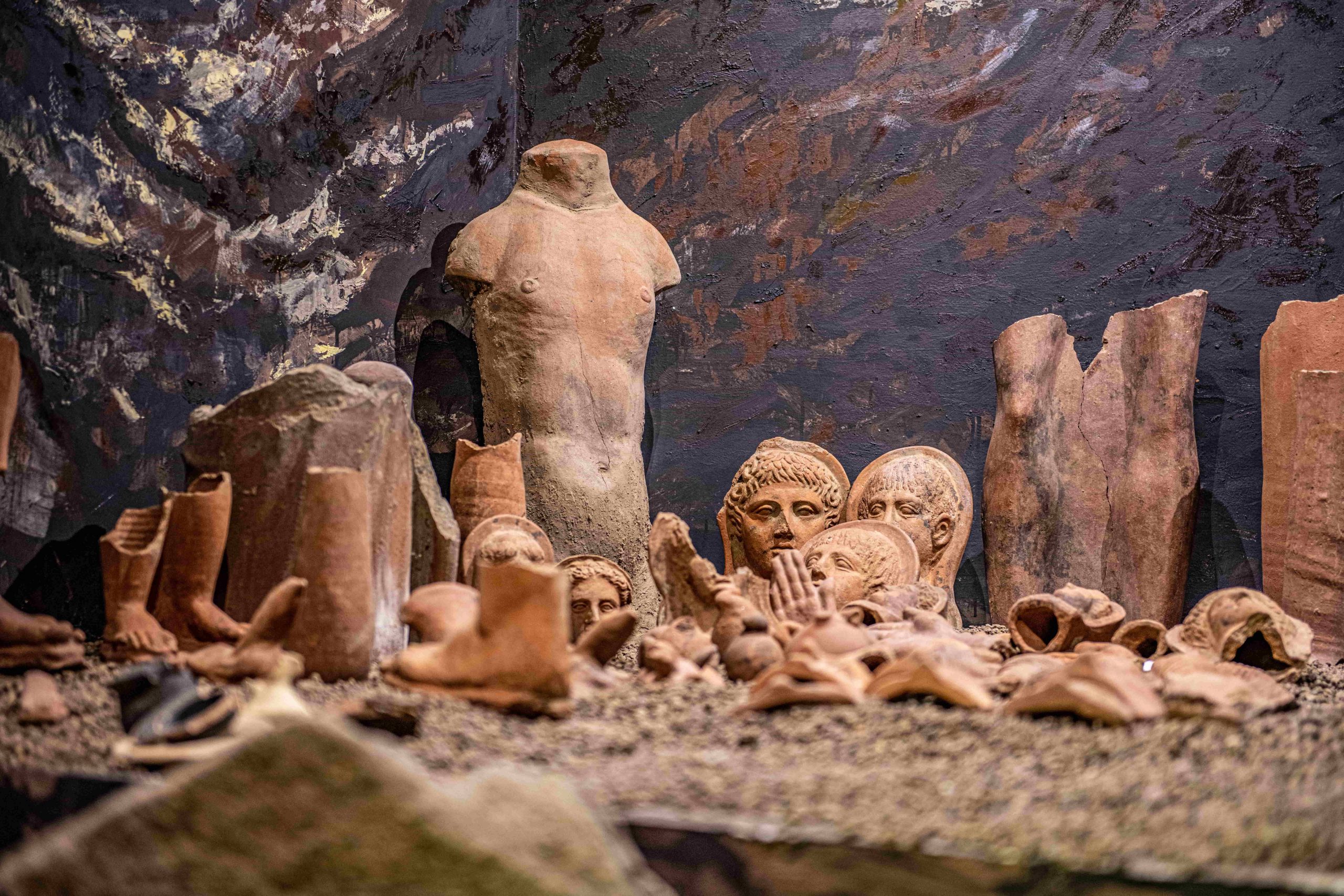
ARCHAEOLOGICAL MUSEUMS
Civic Museum of Lanuvio
LANUVIO
Sede in Piazza della Maddalena, 16
Sezioni: Antica Lanuvium – Epigrafia – Pantanacci – Torre medievale
OPENING HOURS
Mondays, Tuesdays and Thursdays 10 am -1 pm
Wednesdays, Fridays, Saturdays and Sundays 10 am -1 pm and 3 pm -6 pm
(opening hours subject to change)
INFO
Tel +39 06 937 89 237
Fax +39 06 937 89 229
luca.attenni@comune.lanuvio.rm.it
www.comune.lanuvio.rm.it
fb: MuseoCivicoLanuvino
Lanuvio’s Civic Museum was established following the discovery of archaeological finds during the construction of the town hall at the end of the 19th century, and it was in the rooms on the ground floor of this same building that it found its initial home in 1913. Decommissioned due to structural damage caused during the Second World War, the museum returned to its original home in 2001 to preserve and highlight the archaeological finds from the territory of ancient Lanuvium. Since then, the museum collections have been greatly enriched with material found during the excavations carried out in collaboration with the Soprintendenza for Archaeological Heritage of Lazio and La Sapienza-University of Rome.Other material has been recovered by the Guardia di Finanza police in Rome.
In 2013, Lanuvio’s Museo Diffuso was established with the inauguration of a small municipal space used as a museum hall called “Sala della Stipe Votiva” in the Pantanacci area. Immediately after the opening of this new exhibition space (located in Piazza Antonino Pio, a few steps from the town hall), many others followed. These included the section of the museum called “The Castle of Civita Lavinia and the prison of Stendhal” located in the 15th century tower overlooking Piazza Carlo Fontana and the extension of the section devoted to the “Stipe” of Pantanacci with two new halls dedicated to the ceremony in honour of the sacred serpent of Juno Sospita. The remains of the statue in peperino stone date back to the 3rd century B.C. Because of the uniqueness of these exhibits, these two new museum venues have become the strong points of Lanuvio’s Museo Diffuso.
Video
Galleria
Campagna fotografica realizzata nell’ambito del progetto “Oltre Roma” e finanziata dalla Regione Lazio, Avviso Pubblico “La cultura fa sistema 2021”






